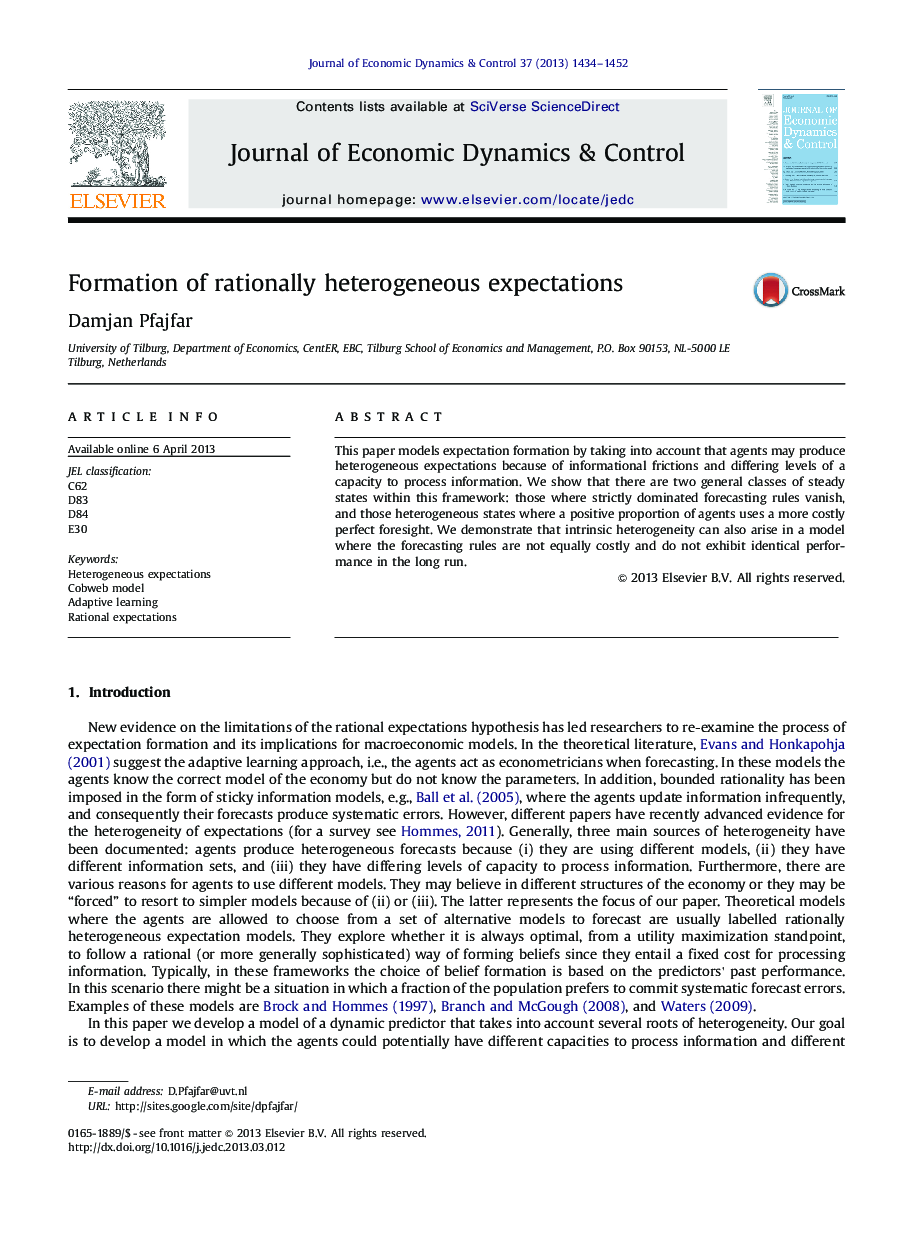| Article ID | Journal | Published Year | Pages | File Type |
|---|---|---|---|---|
| 5098792 | Journal of Economic Dynamics and Control | 2013 | 19 Pages |
Abstract
This paper models expectation formation by taking into account that agents may produce heterogeneous expectations because of informational frictions and differing levels of a capacity to process information. We show that there are two general classes of steady states within this framework: those where strictly dominated forecasting rules vanish, and those heterogeneous states where a positive proportion of agents uses a more costly perfect foresight. We demonstrate that intrinsic heterogeneity can also arise in a model where the forecasting rules are not equally costly and do not exhibit identical performance in the long run.
Related Topics
Physical Sciences and Engineering
Mathematics
Control and Optimization
Authors
Damjan Pfajfar,
